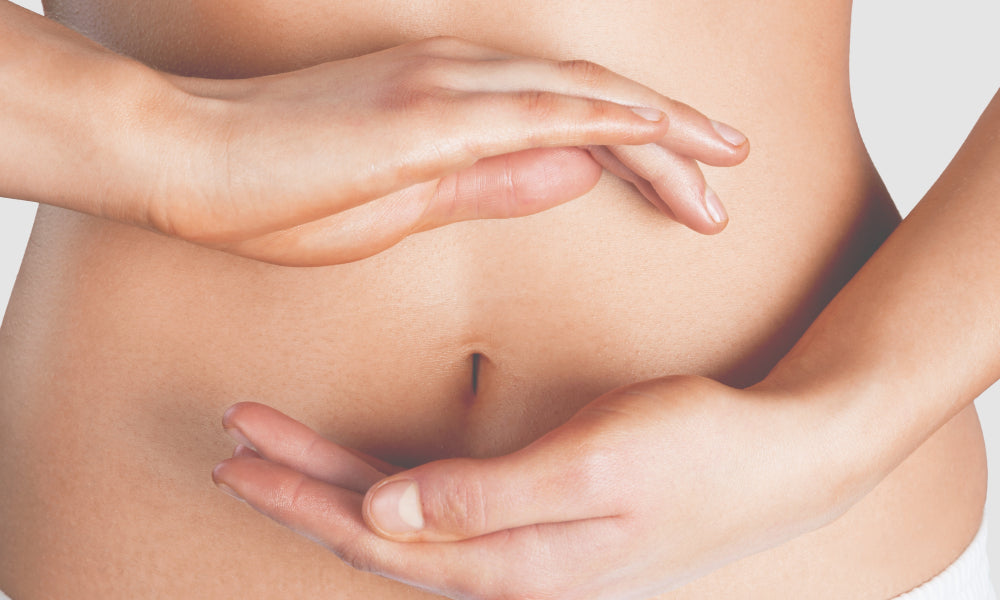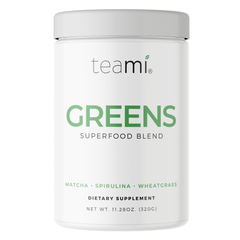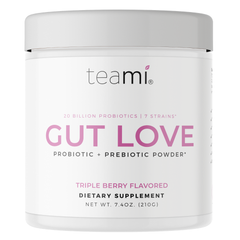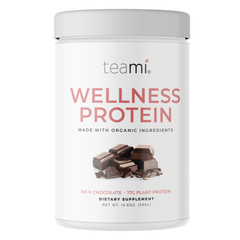Life-Changing Tips to Improve Your Gut Health

Ever think about your gut? If not, you probably should. The millions of bacteria that call our digestive tract home, which include bacteria, yeasts, and viruses, play an essential role in many bodily functions such as immunity and nutrient absorption. There also seems to be a connection between gut health and acne, as well as the brain.
Given the gut’s essential role in our health, it’s vital to promote gut well being. Luckily, there are many simple and easy ways to increase the levels of “good” bacteria while at the same time suppressing the “bad” bacteria. Here are some essential gut health tips for a more diverse gut—and a healthier you!
1. Try A Plant-based Diet
There are many reasons to eliminate meat from your diet, like losing weight, helping combat global warming, and concern for animals, and we can now add improved gut health to the ever-growing list. If you’re concerned about your gut, following a plant-based diet is a fantastic place to start.
Studies have demonstrated clear differences in the gut microbiome of vegetarians and non-vegetarians, with meat-eaters having significantly less gut diversity than their vegetarian counterparts. This disparity may be due to a couple of reasons.
The first reason is that plant-based diets are rich in prebiotic fiber (which we’ll talk about below). Prebiotic fiber promotes the development of diverse gut flora and helps reduce inflammation. The second reason is that red meat consumption minimizes the growth of good bacteria.
So if you’ve been contemplating making the switch to a plant-based diet or reducing your meat consumption, know that your stomach and overall health will probably thank you for it.

2. Probiotics
It’s nearly impossible to talk about gut health without talking about probiotics, so you probably already have some idea of their role in maintaining a healthy stomach. Probiotics may prevent gut inflammation, and at the same time, they also encourage a diverse gut microbiome. And the good news is that adding probiotics to your diet is easy!
Many fermented foods are rich in probiotics. Some of our favorites, which you may already be consuming daily, include:
- Unpasteurized sauerkraut
- Kefir
- Yogurt
- Kombucha
- Miso
- Pickles
As you can see, there are plenty of options. When buying probiotic-enhanced foods, we recommend looking for options with multiple strains. You should aim to take somewhere around 10 billion bacteria daily.
3. Prebiotics
After upping your probiotic intake, the next step is to incorporate prebiotics in your diet.
Our bodies can’t digest prebiotics, but they’re the perfect carbohydrate for the probiotics living in our gut, which digest them perfectly. Think of prebiotics as fuel for probiotics that encourage beneficial bacteria in the gut.
Like we mentioned before, prebiotics are found mostly in plant foods, and their benefits include reducing gut inflammation and helping our digestive system assimilate nutrients. They may also protect against cancers. Like with probiotics, it’s simple to top up prebiotic intake in our diets by incorporating certain foods in it. Some prebiotic-rich foods include:
- Artichokes
- Bananas
- Garlic
- Onions
- Leeks
- Chicory root
- Cocoa
4. Eat Polyphenols
Polyphenols are a general antioxidant found in fruit, veggies, cocoa, and tea. They may help gut health by encouraging the growth of good bacteria while limiting the growth of bad bacteria. The presence of polyphenols is another excellent excuse to have your daily glass of wine or to try out a new tea blend.
5. Fiber
Fiber is what allows the digestive system to clear out waste. It also keeps our gut cells working correctly and promotes higher gut biodiversity. To keep everything running as it should, ensure that you’re getting enough fiber in your diet. Some fiber-rich foods that also form a part of a healthy diet include:
- Wholegrain pasta
- Beans and legumes
- Broccoli
- Collard greens
- Artichokes
- Nuts
- Oats
- Oranges
- Strawberries

6. Avoid Antibiotics When Necessary
Antibiotics can’t be avoided in certain situations, but that doesn’t mean they’re always necessary. A recent study says that US doctors overprescribe these medications by about 30 percent, which causes side effects and leads to antibiotic resistance.
Additionally, antibiotics are detrimental to gut microbiota and immunity. They may alter the beneficial bacteria in our gut for up to six months after use, which is why you should have an open dialogue with your healthcare provider about whether or not they’re necessary.
7. Live A Healthy Lifestyle
Taking care of yourself by doing things like exercising, getting enough sleep, and keeping stress levels down has benefits that go beyond feeling energized or maintaining a healthy weight. Our gut health suffers when other areas of our body function improperly, which is yet another reason why living a healthy lifestyle is so essential.
So how specifically does living a healthy lifestyle improve gut health? In the case of exercise, regular exercise may increase gut biodiversity. The opposite is true when it comes to sleep: poor sleep health has adverse effects on our gut. And both rest and exercise play a fundamental role in reducing stress, which has been shown to disrupt the microorganisms in our gut.
It’s not always easy to exercise, get enough sleep, and keep your stress levels down, but your gut health—and health in general—will thank you for implementing some easy ways to reduce stress.

8. Quit Smoking
The fact that smoking is detrimental to our well-being is not news—everybody knows how bad smoking is. If you need another reason to quit, besides the fact that smoking damages heart and lung health and increases the risk for cancer, here’s another: smoking negatively affects gut health.
A 2018 study provides fascinating information about the link between smoking and gut health. It shows that smoking decreases gut microbiome diversity by favoring microorganisms that are detrimental to your gut and reducing the number of beneficial ones. These changes may put you at risk for intestinal and systemic conditions, especially inflammatory bowel disease.

Love,
Adi Arezzini | @adiarezzini
Co-Founder + CEO, Teami Blends
Certified Holistic Nutrition Coach
Discover our Teami Wellness Products
Subscribe to our Newsletter
Subscribe to our newsletter and get 10% off your first purchase



 Instagram
Instagram



